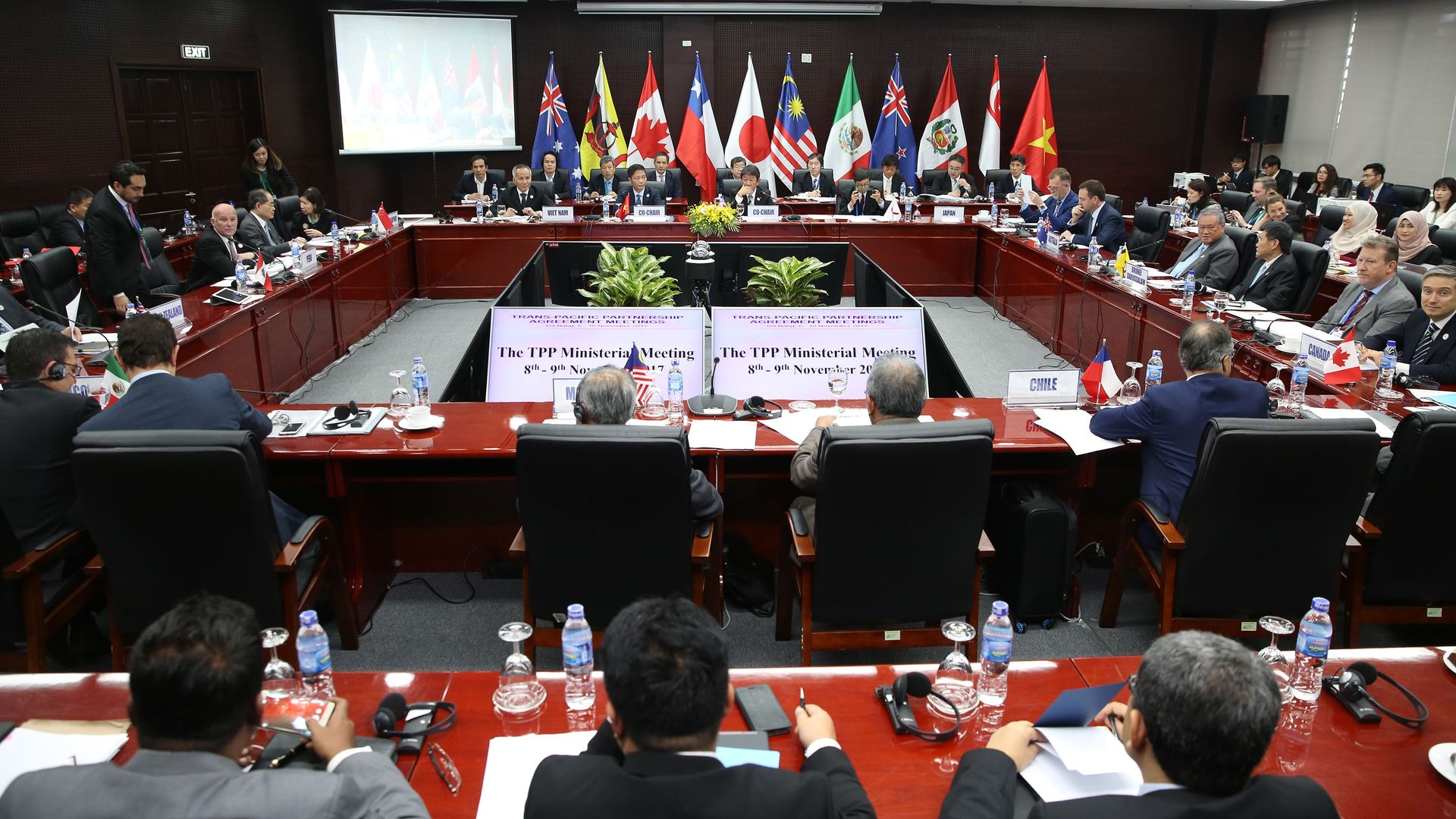Updated Jan 23, 2018 - Politics & Policy
Expert VoicesAsia has moved on after U.S. withdrawal from TPP
Add Axios as your preferred source to
see more of our stories on Google.

Trade ministers and delegates from the remaining members of the Trans Pacific Partnership (TPP) attend the TPP Ministerial Meeting in the central Vietnamese city of Danang on November 9, 2017. Photo: NA SON NGUYEN / AFP / Getty Images
